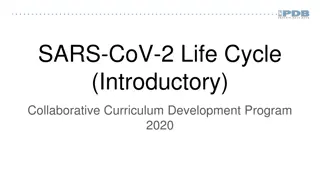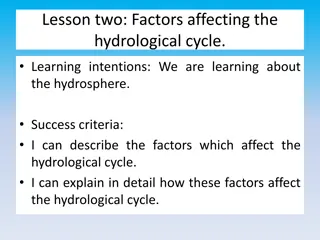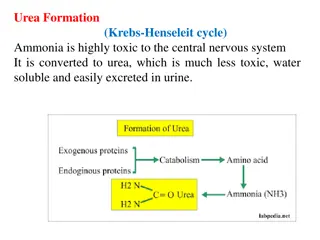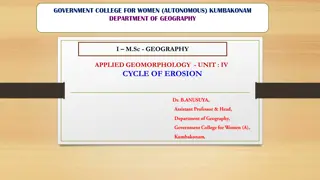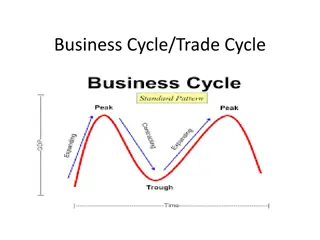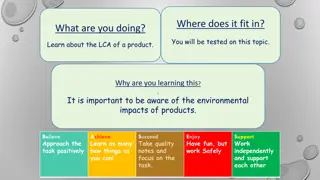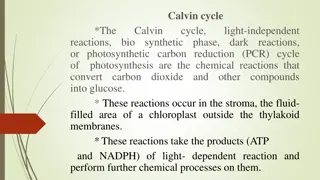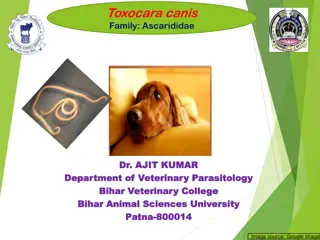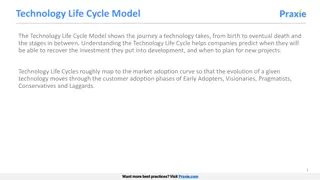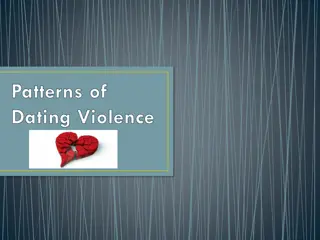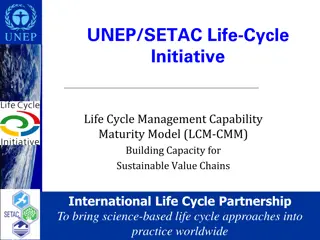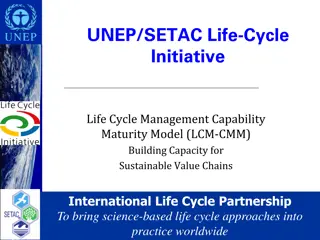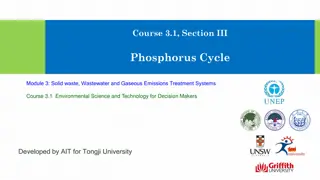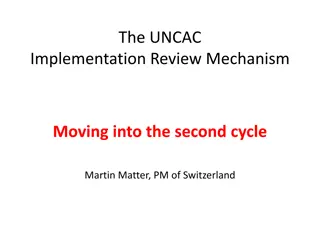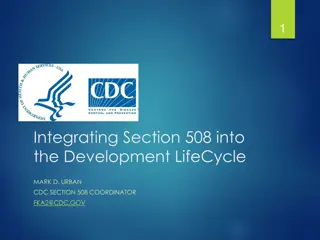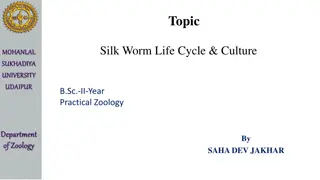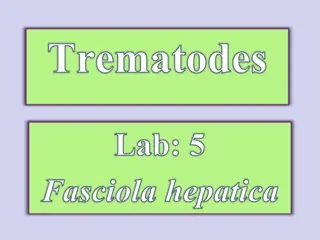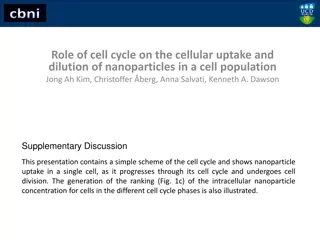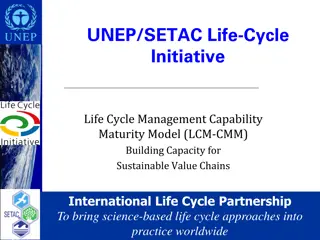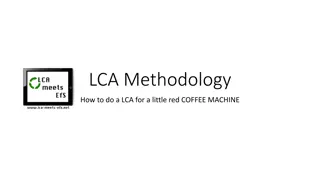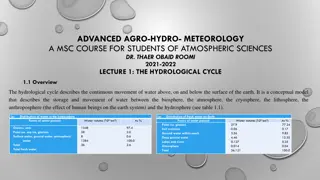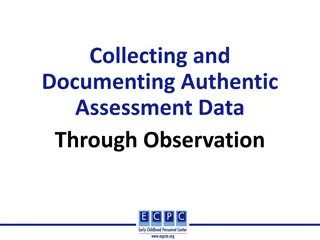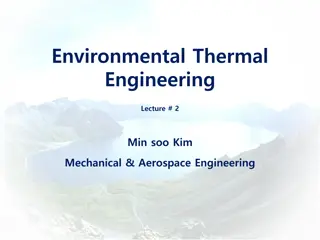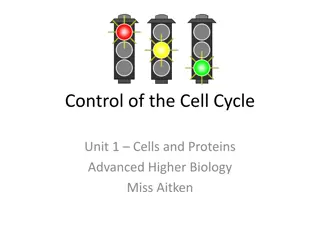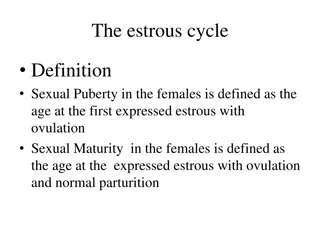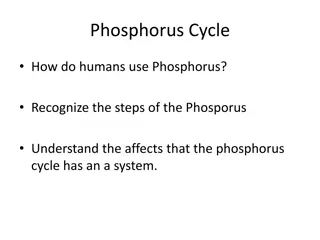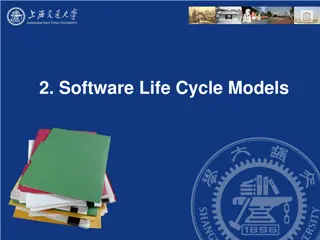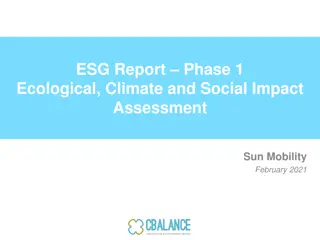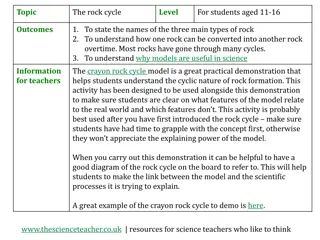Understanding Product Life Cycle Costing: A Comprehensive Analysis
Lifecycle costing involves tracking cost records of assets throughout their entire lives, optimizing asset usage at minimal cost. Product lifecycle costing accumulates a product's costs from inception to disposal, with stages like Introduction, Growth, Maturity, and Decline. It helps assess profitab
4 views • 19 slides
Overview of DSW End Point Assessment Team Leader Level 3
DSW End Point Assessment Team Leader Level 3 provides a clear understanding of the assessment process, ensuring individuals comprehend why and when it occurs, responsibilities involved, and how DSW supports them. It covers topics such as what End Point Assessment entails, assessment design and deliv
1 views • 18 slides
Understanding the SARS-CoV-2 Life Cycle: An Overview
SARS-CoV-2, the virus responsible for COVID-19, follows a complex life cycle involving viral attachment and entry, replication and synthesis, as well as viral assembly and release. The virus interacts with host cell proteins to enter, produce essential proteins and RNA for reproduction, and then ass
1 views • 5 slides
Factors Affecting the Hydrological Cycle: Understanding Physical and Human Influences
The hydrological cycle is influenced by both physical and human factors. Physical factors such as relief, vegetation, basin size, rock type, soil type, and climate all play a role in shaping the movement of water through the cycle. Human activities like forestry, urbanization, deforestation, mining,
2 views • 20 slides
Understanding the Accounting Cycle Process
The accounting cycle is a comprehensive process that involves recording and processing all financial transactions of a company, from their occurrence to their representation in financial statements and closing of accounts. It is crucial for bookkeepers to manage the entire cycle, which includes step
0 views • 11 slides
Urea Biosynthesis and the Krebs-Henseleit Cycle in the Liver
Urea is synthesized in the liver through a series of enzymatic steps known as the urea cycle or Krebs-Henseleit cycle. This process involves converting toxic ammonia into urea, a less toxic and water-soluble compound that can be easily excreted in urine. The liver plays a crucial role in urea biosyn
1 views • 20 slides
Understanding the Cycle of Erosion: Applied Geomorphology Perspective
The Cycle of Erosion model, developed by Davis in the 1880s, explores the process of landmass upliftment, river erosion, and landscape transformation. The Normal Cycle of Erosion focuses on fluvial processes as the primary geomorphic agent, leading to the formation of peneplains. This cycle progress
0 views • 23 slides
Understanding the Accounting Cycle
The accounting cycle is a comprehensive process that involves recording and processing all financial transactions of a company, from their occurrence to their representation on financial statements and closing the accounts. This cycle, essential for bookkeepers, includes steps like transactions, jou
0 views • 11 slides
Understanding the Business Cycle and Its Phases
The business cycle, also known as the trade cycle, depicts the cyclical nature of economic activity with alternating periods of prosperity, recession, depression, and recovery. It involves fluctuations in production, prices, income, employment, exports, and imports. The cycle affects all industries
0 views • 15 slides
Understanding Malaria Parasites and Their Life Cycle
Malaria parasites, including Plasmodium vivax, falciparum, malariae, and ovale, exhibit an alternation of generations phenomenon with a life cycle involving asexual and sexual phases. These parasites require both vertebrate and invertebrate hosts for development, with maturation stages involving gam
0 views • 30 slides
Understanding the Environmental Impact of Products through Life Cycle Analysis
Explore the concept of Life Cycle Analysis (LCA) to understand how products impact the environment at different stages of their life cycle. By looking at what goes into making a product, how it is produced, transported, used, and disposed of, you can gain insights into its environmental footprint. E
0 views • 8 slides
Understanding the Calvin Cycle in Photosynthesis
The Calvin cycle, also known as the light-independent reactions, is a crucial part of photosynthesis where carbon dioxide is converted into glucose. This cycle occurs in the stroma of chloroplasts and utilizes ATP and NADPH from the light-dependent reactions to produce sugars for plants. It consists
5 views • 15 slides
Comprehensive Overview of Toxocara canis Life Cycle and Characteristics
Toxocara canis, also known as the Arrow-headed worm, is a parasite commonly found in dogs, particularly in puppies less than six months old. This article explores the general characteristics, life cycle, transmission routes, and prenatal infections of Toxocara canis. From the appearance of the male
0 views • 12 slides
Understanding the Technology Life Cycle Model
The Technology Life Cycle Model illustrates the journey of a technology from inception to obsolescence, guiding companies in investment recovery and project planning. By mapping to the market adoption curve, it moves through phases like Early Adopters, Visionaries, Pragmatists, Conservatives, and La
1 views • 4 slides
Ideal Reheat Rankine Cycle Analysis for Steam Power Plant
Analyzing the thermal efficiency and mass flow rate of an ideal Rankine cycle with superheat and reheat using steam as the working fluid. The cycle involves stages of expansion, reheating, and condensing to generate a net power output of 100 MW. Detailed calculations for states of the cycle are prov
1 views • 5 slides
Adapting Contest Strategies for Declining Solar Cycle 24 and Solar Cycle 25 Precursors
As Solar Cycle 24 rapidly declines, preparations for the subsequent Solar Cycle 25 are crucial. Insights on weak solar activity, potentially weak Cycle 25, and the impact on contest strategies are discussed. Improved DX propagation, reliable openings, and signal strengths to Europe and Japan, amidst
0 views • 12 slides
Recognizing Patterns of Dating Violence and the Cycle of Abuse
Understanding the phases of dating violence is crucial in recognizing and addressing abusive behavior. The cycle typically begins with tension building, leading to an explosion of abuse in various forms. This is followed by a honeymoon phase where the abuser apologizes and makes promises. However, t
0 views • 6 slides
Sustainable Value Chains and Life Cycle Management Capability
The UNEP/SETAC Life-Cycle Initiative focuses on building capacity for sustainable value chains through the Life Cycle Management Capability Maturity Model (LCM-CMM). It emphasizes implementing science-based life cycle approaches globally by transitioning from events to management systems, conducting
1 views • 12 slides
Understanding Higher Education Assessment: The Complete Guide
Higher education assessment involves a systematic process of collecting, reviewing, and utilizing information to improve student learning and development. This guide covers the assessment cycle, learning outcomes, the mission behind assessment in higher education, what assessment is and is not, reas
1 views • 36 slides
Life Cycle Management for Sustainable Value Chains: Building Capacity and Promoting Innovation
This content delves into the Life Cycle Management Capability Maturity Model (LCM-CMM) aimed at enhancing sustainable value chains globally. It emphasizes the importance of bringing science-based life cycle approaches into practical implementation to address global issues, international standards, c
1 views • 11 slides
Overview of Environmental Impact Assessment and Strategic Environmental Assessment Directives
Environmental Impact Assessment (EIA) and Strategic Environmental Assessment (SEA) play crucial roles in evaluating the impact of planned activities on the environment. This content delves into the concept, origins, development, and key elements of environmental assessment, discussing the legal fram
2 views • 35 slides
Fuel Cycle Analysis Toolbox: Enhancing Understanding and Optimization
This presentation focuses on the analyses and evaluations essential for assessing the potential of a fuel cycle, emphasizing different time scales, system sizes, objectives, and audiences. It discusses the need for coupled analyses, various tools required, and opportunities for improvement through i
1 views • 11 slides
Understanding the Phosphorus Cycle in Environmental Science
Exploring the intricate processes of the phosphorus cycle, this module delves into how solid waste, wastewater, and gaseous emissions are treated within environmental science and technology frameworks. The discussion covers the distinctive aspects of the phosphorus cycle, its impact on land and wate
0 views • 13 slides
UNCAC Implementation Review Mechanism: Moving Towards the Second Cycle
The UNCAC Implementation Review Mechanism is progressing into its second cycle, with a focus on evaluating challenges and terms of reference at the conclusion of each review cycle. The performance assessment has highlighted achievements in enhancing awareness and involvement of civil society/private
0 views • 7 slides
Integrating Section 508 into the Development Life Cycle by Mark D. Urban
Mark D. Urban, CDC Section 508 Coordinator, discusses the importance of integrating Section 508 into the development life cycle. The presentation covers topics such as the basics of a life cycle, classic vs. modern development methods, authoring tools, validation, and the unique considerations for m
0 views • 16 slides
Silk Worm Life Cycle and Culture at Mohanlal Sukhadiya University Udaipur
The life cycle of silk worms, particularly Bombyx mori, is detailed in this practical study conducted by the Department of Zoology at Mohanlal Sukhadiya University, Udaipur. The process from eggs to larvae, cocoon formation, and the emergence of the adult silk moth is explained. Silk worms feed on m
0 views • 13 slides
Institutional Assessment and Effectiveness Workshop Achievements at SUNY Oneonta
The Office of Institutional Assessment and Effectiveness at SUNY Oneonta has made significant progress in developing assessment protocols and processes, leading to a culture of assessment. This includes completing planning and assessment cycles, establishing objectives and procedures, and aligning u
1 views • 16 slides
Overview of Fasciola hepatica Life Cycle
Explore the life cycle of Fasciola hepatica, a parasitic trematode infecting humans and other vertebrates. Learn about its various stages including adult worms, eggs, miracidium, cercaria, and metacercaria. Understand the intricate reproductive processes involving both sexual and asexual reproductio
0 views • 13 slides
Role of Cell Cycle in Nanoparticle Uptake and Dilution in Cell Population
The cell cycle plays a crucial role in the cellular uptake and dilution of nanoparticles within a cell population. This process involves different phases such as G1, S, G2, and M, each with specific functions related to cell growth, DNA synthesis, protein synthesis, and cell division. Understanding
0 views • 20 slides
Sustainable Value Chains and Business Context in Life Cycle Management
The UNEP/SETAC Life-Cycle Initiative focuses on building capacity for sustainable value chains worldwide through the Life Cycle Management Capability Maturity Model. Understanding the competitive, environmental, and business contexts is crucial for implementing science-based life cycle approaches ef
0 views • 15 slides
Life Cycle Assessment of a Little Red Coffee Machine
Explore the methodology and steps involved in conducting a Life Cycle Assessment (LCA) for a little red coffee machine, including defining a functional unit, inventory analysis of materials used, production processes, and more. Learn about the phases and applications of LCA based on ISO 14040 standa
0 views • 14 slides
Understanding the Hydrological Cycle in Advanced Agro-Hydro-Meteorology
The hydrological cycle involves the continuous movement of water on, above, and below the Earth's surface, encompassing various realms such as the biosphere, atmosphere, cryosphere, lithosphere, and hydrosphere. This cycle describes the storage and movement of water within different Earth systems an
0 views • 14 slides
Authentic Assessment through Systematic Observation: Best Practices
Explore the process of authentic assessment through systematic observation in early childhood education. Learn about collecting, documenting, and interpreting assessment data using evidence-based practices and technology. Discover the importance of working collaboratively with families and professio
0 views • 53 slides
Fundamentals of Environmental Thermal Engineering in Mechanical & Aerospace Engineering
Explore the key concepts of environmental thermal engineering in Mechanical & Aerospace Engineering, covering topics such as the Carnot cycle, actual vapor-compression cycle, principles of the vapor-compression cycle, Carnot heat engine, refrigeration cycle, and coefficient of performance. Understan
0 views • 51 slides
Understanding Cell Cycle Control in Biology
Maintaining control of the cell cycle is crucial to producing healthy daughter cells and preventing mutations that can lead to degenerative diseases like Parkinson's or cancer. Cell cycle checkpoints at G1, G2, and Metaphase ensure the cell meets specific requirements before progressing to the next
0 views • 11 slides
Understanding the Estrous Cycle in Female Animals
The estrous cycle is a reproductive phenomenon in female animals, consisting of different phases like proestrus, estrus, metestrus, and diestrus. This cycle determines the periods of sexual receptivity and fertility in various species such as cows, ewes, sows, and mares. Factors like season, nutriti
0 views • 20 slides
Understanding the Phosphorus Cycle and Its Impact on Ecosystems
Humans use phosphorus in various ways, from being a vital component in DNA, RNA, and cell membranes to its role in energy transfer processes. The phosphorus cycle involves steps such as weathering of rocks, phosphate mining for fertilizers, excretion/decomposition, and geologic forces. However, exce
0 views • 8 slides
Understanding Software Life Cycle Models
Explore the various software life cycle models, their importance in software development, iteration and incrementation concepts, risks, managing strategies, comparison of different life cycle models, and project planning considerations in software engineering. Hundreds of models are known and used,
0 views • 83 slides
Sun Mobility ESG Report Phase 1 - Impact Assessment February 2021
This report delves into the ecological, climate, and social impact assessment of Sun Mobility, focusing on life-cycle inventory analysis, assumptions made, and the goals and scope of the study. It aims to establish baseline life cycle footprints for conventional vehicles and Battery-as-a-Service sol
0 views • 24 slides
Exploring the Rock Cycle Using the Crayon Rock Cycle Model
This educational resource focuses on teaching students aged 11-16 about the rock cycle, including the types of rocks, how rocks transform over time, and the importance of models in science. It introduces the crayon rock cycle model as a hands-on demonstration to help students grasp the cyclic nature
0 views • 4 slides


